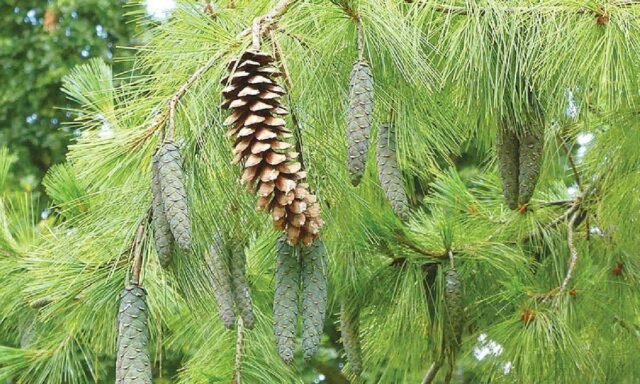Hyderabad: As air pollution reaches alarming levels in Hyderabad, environmental experts have come out with suggestions to reduce pollution in industrial zones. Plantation of native medicinal plants (neem, Indian bamboo, gooseberry, etc.) in industrial areas and also at various junctions will help to remove particulate matter (PM). There is also a need to eliminate particular ornamental plants which do not help in cleaning pollutants in the air.
Experts stressed that Indian medicinal species play a vital role in directly removing pollutants from the air. Plants are often referred to as the lungs of an ecosystem because they absorb carbon dioxide and emit oxygen and along with this they also act as an ecosystem liver, filtering atmospheric pollutants like sulphur dioxide and nitrogen dioxide through their leaves. Ayurveda and modern science have proven that trees like mango, peepal, jackfruit, pine and eucalyptus absorb more carbon dioxide and release more oxygen and also are used for medicinal purposes.
Highlighting the pivotal role of medicinal plants in addressing environmental challenges, Dr Upul Kumara, an Ayurvedic expert in pollution control practice, said, “Trees like bamboo, peepal (sacred fig), mango, pine, eucalyptus, jackfruit, and fig demonstrate exceptional potential in absorbing carbon dioxide from the air, significantly contributing to reducing greenhouse gas emissions”.
He also shed light on the ability of certain plants to remediate soil and water contaminated with heavy metals such as cadmium, lead, arsenic, and chromium—substances known to cause severe health hazards. He spoke of the effectiveness of species like vetiver, Indian mustard, moringa, sunflower, and neem in extracting these toxic metals, thus playing a vital role in restoring ecological balance.
A few environmental experts said that the state government should encourage growing medicinal plantations rather than ornamental trees, as very often in several industrial areas one can see ornamental plants but most of them fail to absorb the pollutants. There are few variants of these plants that pollinate twice a year and the pollen can cause health complications such as cold, cough, asthma and allergies. Additionally, they are also known to clog drains and freshwater pipelines and also release toxic gases.
“Indigenous medicinal plant species play a vital role in absorbing metals from soil and water. But due to their attractive nature, ornamental plants are preferred. On the other hand, medicinal plants are effective but only for few years. The government should come up with a long-term solution such as source level pollution control, environmentally sustainable development mechanism, catchment sanitation of water bodies, etc.”, said C Uma Maheshwar Reddy, an environmental scientist.






